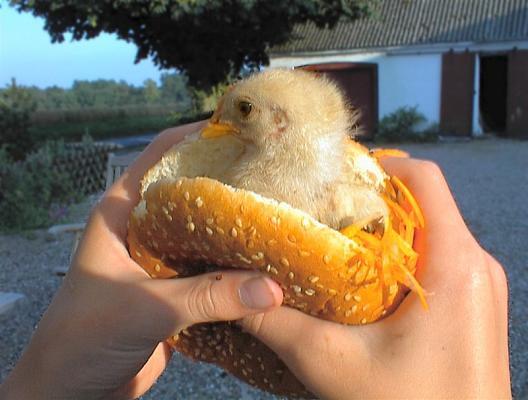
Burnt Food
Cooking is something that requires your attention. You are dealing with things like hot ovens, hot stoves, hot grills, etc. that can easily ignite or burn your food if left unattended. Don't plan on cooking something if you cannot give it your attention. Many a new or poor cook often lament that they are always burning things which I find hard to believe if you're standing there over your stove or watching your oven, or paying attention to your oven timers.

Burned Body Parts
One of the worst injuries of my life, was from making pancakes. I went to flip one, didn't realize there was oil that someone else had added more of to my pan, and hot oil flew out and burned my entire forearm. The burns literally looked like grease splatter on my actual skin. It was extremely painful and required a lot of healing time and believe me, you don't do that one twice.
It's best to wait for a while as your oven cools before opening it, but even so when reaching in a hot oven use oven gloves and mitts and avoid touching the inside of the door or racks which can be super hot. Do not open the oven door and stand directly in front of it, because the steam from whatever you're cooking often rushes up and out and right into your face.Also it is a good idea to announce out loud to those in the kitchen with you that you have a hot pan, so they don't back up into you or move quickly causing you to drop your hot pan or burn them.
Hot oil can be massively dangerous and can start grease fires. Make sure you definitely have a fire extinguisher on hand in short walking distance to your cooking station, and ensure that you don't overfill or let oil bubble up and over a pan or put your face or hands anywhere near hot or sizzling oil. They sell splatter guards which can be placed over skillets and pans to help prevent oil from popping up at you.
Do not leave your gas stove lit and unattended or anything on the stove that is not heat safe because it takes a second for something to ignite and that fire to spread. If you have kids, make sure you baby proof your stove/oven and generally keep very young children out of the kitchen to prevent nasty and sometimes deadly burns.
Bloody Fingers
Even the best cooks and chefs in the world have nicked a finger. It happens, but it can happen 99.9% less if you learn proper knife skills and are again, paying attention to what you're doing. A kitchen knife should be incredibly sharp and as such, proper form is there to protect your digits from a really bad slicing. You don't want a dull knife because it forces you to use more pressure and use the knife oddly because it's frustrating to you that the knife won't cut what you need it to and so you force it as much as you can.
Just picture yourself trying to cut a phone book in half with child safety scissors. This is what it's like to use a bad knife. Your fingers should be tucked back from the blade, the item you're cutting should not be rolling or slippery in your hand, and your cutting board needs to be set in place.

Over Salted/Seasoned Foods
Nothing causes someone to recoil more than over salted or seasoned foods. It's very jarring to the senses and will render food inedible. One of the easiest ways to prevent this is to simply follow the ingredient amounts listed in the recipe and make sure you're not confusing a teaspoon needed with a tablespoon. Keep in mind that you can always add more seasoning, but you cannot undo what you've already added.
When seasoning, never directly poor your seasoning from a container into your food. The lids or caps may be loose, you may not be able to control how fast the seasoning is released, and then the food is ruined. Instead put the seasoning in a small container and then pick it up with your hands and sprinkle over food AND THEN TASTE IT! Don't just guess at how salty something is...taste it! That will tell you, hey, I need to pick up a tiny sprinkle more to add to the dish.

Raw or under cooked meats
There is nothing funny about serving someone raw or under cooked meat. This is one of the fastest ways to give someone food poisoning that could land them in the hospital or in worse cases, kill them. Early on in your cooking adventure, ways to prevent this are to slice thick cuts of meat in half for shorter and more even cooking times, use a meat thermometer (instructions/temps usually come with or view online) to determine if the internal temperature of the meat is safe for you to eat, or cut into a test portion of the meat into the center to see if cooked. Just because something is browned on the outside, like a turkey or chicken, doesn't mean, it is fully cooked especially if it was never thawed properly.
Also follow the cook times, which do depend on where you live and your elevation, so don't be afraid to stick something back in the oven for a few more minutes until you are confident the food is fully cooked. Never try to serve up raw meat and hope people won't notice...they will...and it will be bad. Over time, you will eventually learn how to properly gauge what cooked food looks like/feels like, but if you still feel unsure, always use tools like meat thermometers because it is better safe than sorry.
Most Helpful Opinions